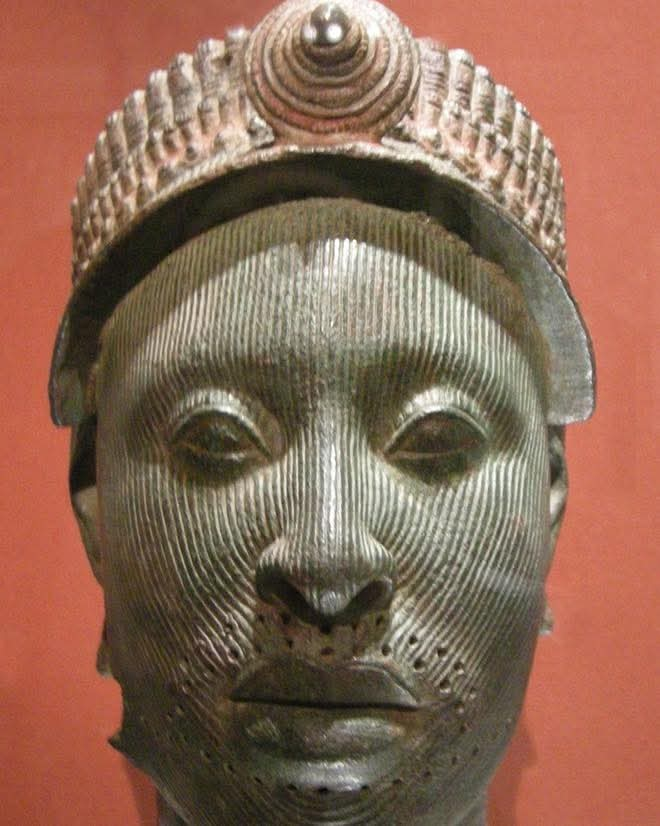Yoruba People! Cultural Heritage and their Global Expansion.
Yoruba People! Cultural Heritage and their Global Expansion.
The Ancient Roots of Yoruba Civilization
The Yoruba people, residing in southwestern Nigeria and the Republic of Benin, boast a rich cultural heritage spanning over 2,000 years. Their deep history, intertwined with myth, archaeology and oral tradition, offers a fascinating glimpse into Africa’s vibrant past.
The Oduduwa Dynasty (1000 BC)
According to Yoruba mythology, Oduduwa, the founder of the Yoruba kingdom, descended from heaven to establish the city of Ile-Ife. Archaeological findings support the existence of an ancient civilization in Ile-Ife dating back to 1000 BC.
*The Mythical Account*
The mythological account of Oduduwa’s descent highlights the significance of Ile-Ife as the spiritual and cultural hub of the Yoruba people. Oduduwa’s legacy extends beyond the establishment of the Yoruba kingdom, as he is revered as a symbol of unity, wisdom and divine authority.
The Ile-Ife Golden Age (800-1400 AD)
Ile-Ife flourished as a major center of trade, art and culture. The renowned Ife Bronze Age artifacts, showcasing intricate bronze work, date back to this period.
*Cultural Achievements*
During this golden age:
1. *Artistic Innovations*: Ife bronze castings showcased exceptional craftsmanship.
2. *Trade Networks*: Ile-Ife established extensive trade routes with neighboring kingdoms.
3. *Cultural Diversity*: Influences from neighboring cultures enriched Yoruba traditions.
The Oyo Empire (1300-1836 AD)
The Oyo Empire rose to prominence, expanding Yoruba influence across West Africa. Its powerful rulers, known as the Alaafin, maintained strong trade and cultural ties with European colonizers.
*Imperial Expansion*
Key factors contributed to Oyo’s success:
1. *Military Prowess*: Well-organized cavalry and infantry enabled expansion.
2. *Administrative Efficiency*: Effective governance facilitated stability.
3. *Economic Prosperity*: Trade agreements secured wealth.
The Yoruba Diaspora
The transatlantic slave trade forcibly dispersed Yoruba people across the Americas. Despite this, Yoruba culture, language and traditions continue to thrive globally.
Legacy of Resilience Yoruba descendants in:
1. *Cuba*: Preserved African traditions in music and dance.
2. *Brazil*: Maintained Yoruba spiritual practices.
3. *United States*: Contributed to African-American cultural identity.
Preserving Yoruba Heritage
Efforts are underway to safeguard Yoruba historical sites, languages and customs. The Yoruba cultural renaissance celebrates the resilience and diversity of this ancient civilization.
Conservation Initiative
1. *UNESCO World Heritage Sites*: Protecting Ile-Ife and Oyo ancient cities.
2. *Cultural Festivals*: Promoting traditional music, dance and art.
3. *Language Documentation*: Preserving Yoruba dialects.
The Yoruba people’s deep history serves as a testament to Africa’s rich cultural heritage. Exploring their ancient civilization offers valuable insights into the complexities of human history and the resilience of cultural traditions.
References:
1. “A History of the Yoruba People” by Toyin Falola and Matthew M. Heaton
2. “Yoruba: Nine Centuries of African Thought and Culture” by E. Bolaji Idowu
3. “The Yoruba Diaspora: Identity and Belonging” edited by Toyin Falola and Niyi Afolabi
4. “Ife: The Ancient Yoruba City” by Akinwumi Ogundiran
5. “Yoruba Culture: A Philosophical Account” by Segun Gbadegesin
Image Credits:
1. Oduduwa statue: Wikimedia Commons
2. Ife Bronze Age artifact: British Museum
3. Ancient Oyo Empire map: Library of Congress
4. Yoruba cultural festival: Getty Images
5. Yoruba cultural performance: Reuters
